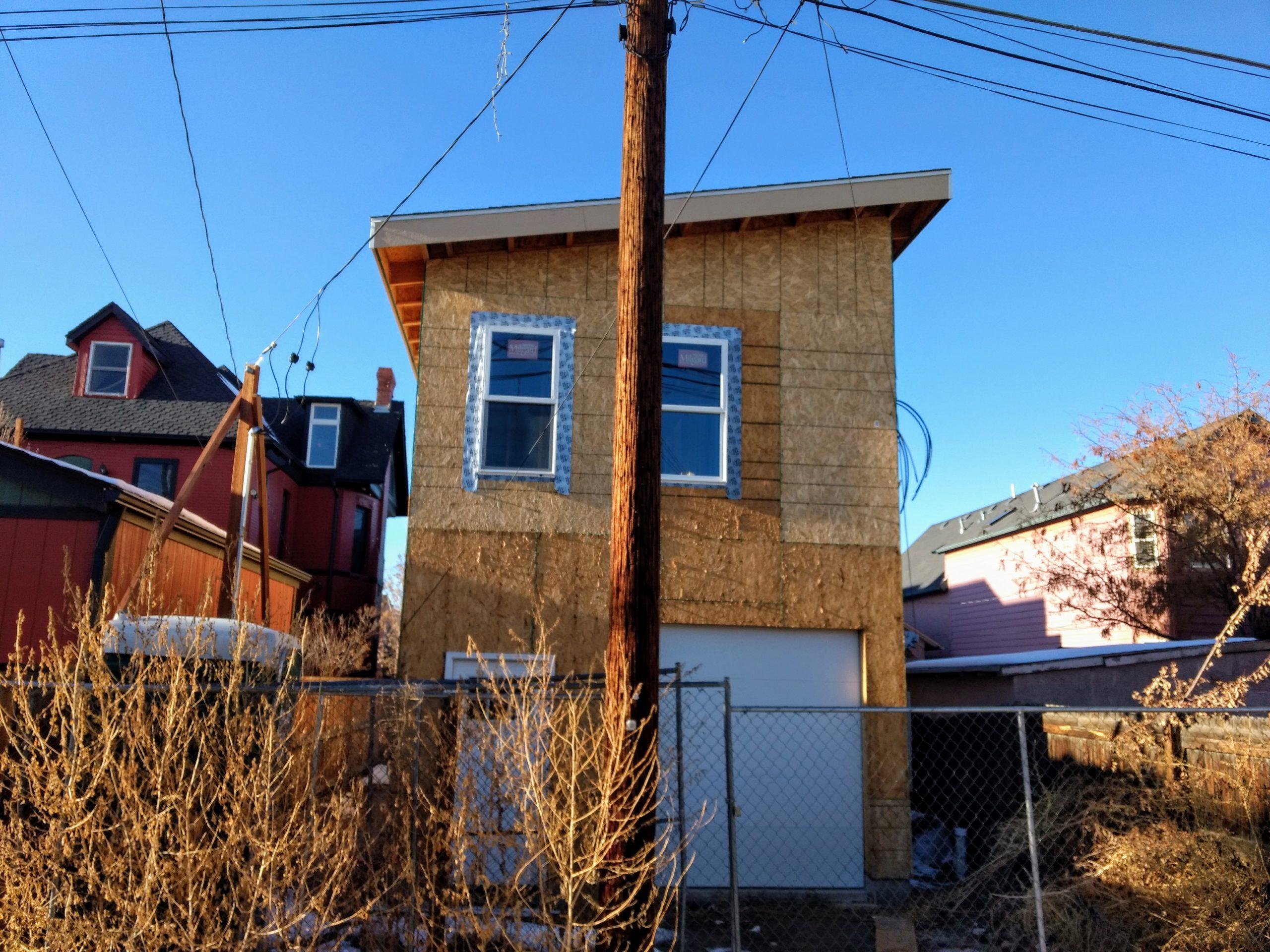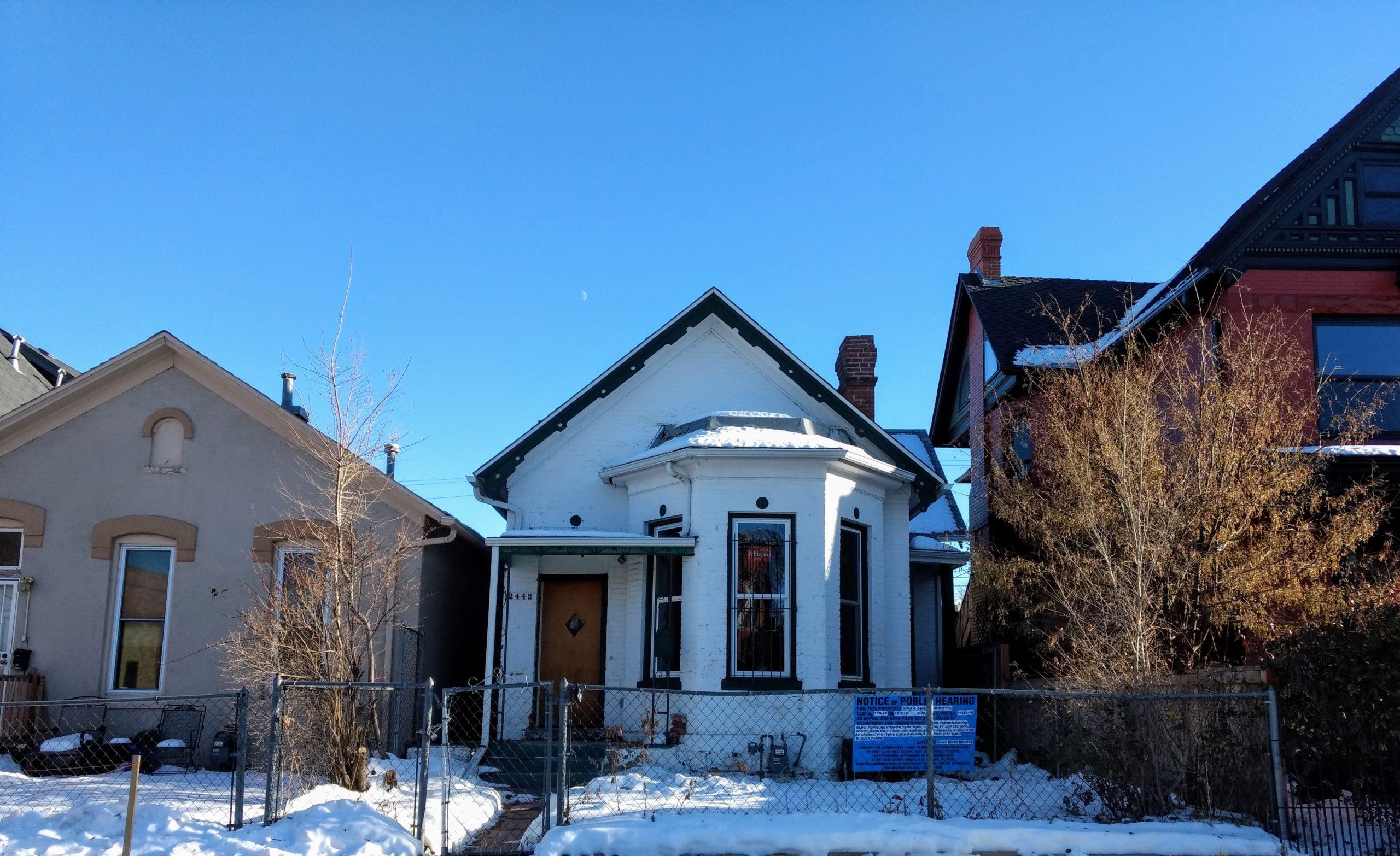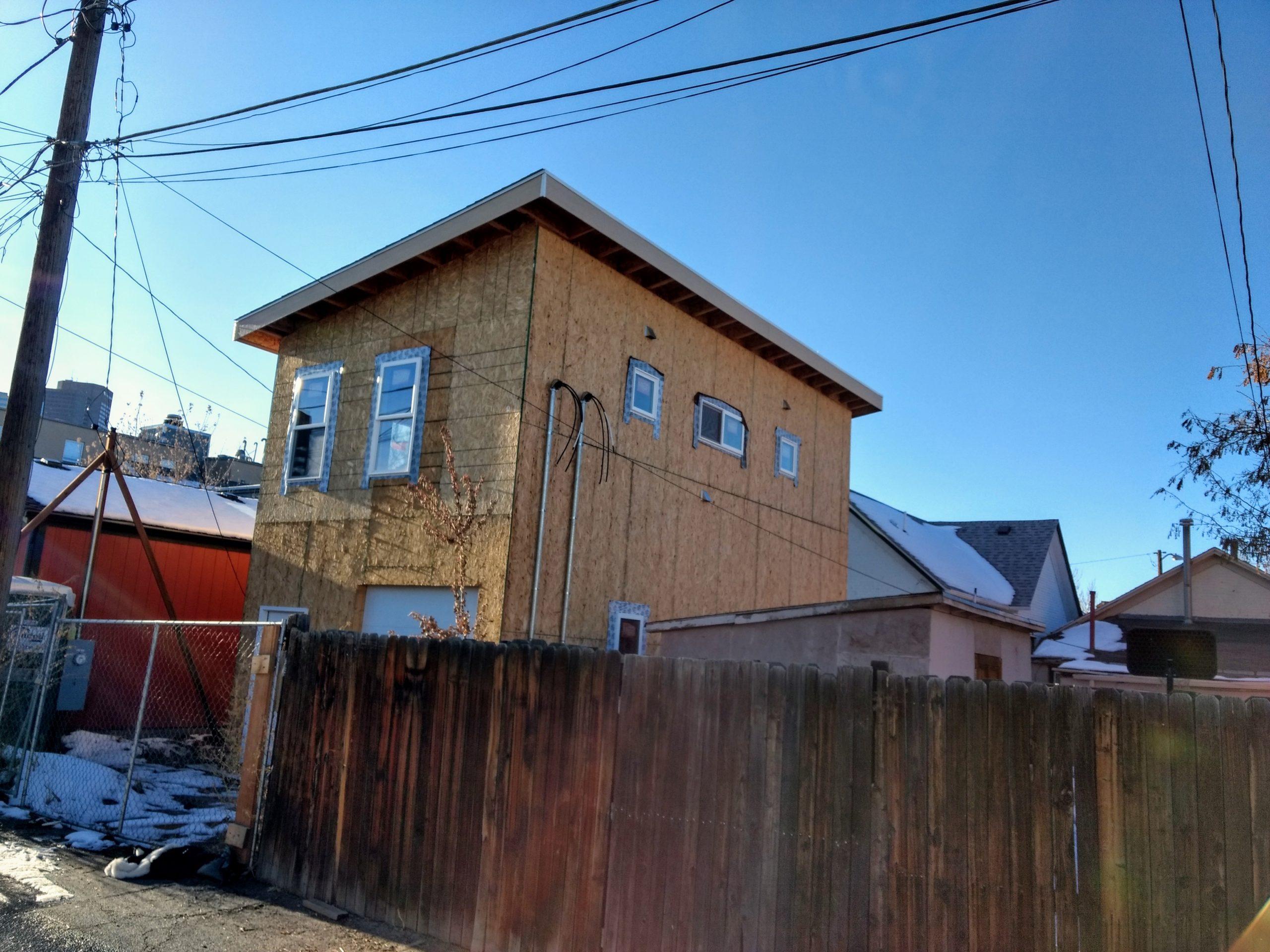Under the old zoning rules, it was fine to add a boxy house to a Five Points lot behind a Victorian bungalow.
Neighbors got a chance to fight a project they said was intrusive and out of character, thanks to a shift by the builder and to a change in those rules.
Developers say they are likely to demolish and rebuild the almost completed structure at 2444 Tremont Pl. with living quarters stacked on a ground-floor garage, just a foot from where it stands now along an alley. The old zoning rules allow for that. The developers and the neighbors each had hoped for a different outcome.
LNWS Investments, the small company that had the house built on Tremont, told members of the Board of Adjustment for Zoning Appeals during a Dec. 3 hearing that its contractor ran into an underground plumbing issue that led him to change placement of the foundation by one foot. LNWS's three partners, engineers who first met as students at the Colorado School of Mines, said their contractor did not tell them about the change and it was not noticed by city inspectors until fairly late in the process. LNWS wanted to avoid the expense of tearing down and rebuilding and complete the house where it stood, though under the new zoning rules it was too big and too tall.
As city architect Amir Abu-Jafer put it during the Dec. 3 appeals hearing: "They just didn't build what they said they were going to. Which is why we're here today."
"Here" was the kind of nondescript room in the Wellington Webb Municipal Building where development in Denver is sometimes hammered out, architectural sketch by architectural sketch, protest letter by protest letter, foot by foot.
Jim Keavney, vice chair of the Board of Adjustment for Zoning Appeals, said during the hearing that it wasn't unusual for builders to meet problems on site that required changes to plans. He questioned why developers hadn't just requested and received permission for a modification. City staff explained that had zoning not changed since the plans were first approved, it might have been that simple.
Instead, LNWS requested city staff grant leniency and was denied because of the new zoning rules. That led to the appeal.
"We were put in this pickle by a rezone," LNWS partner Mike Nguyen said in an interview.
The appeals board received several letters opposing the variance LNWS wanted.
Gary Noto, who lives near 2444 Tremont, wrote that neighbors had gone to a great deal of effort to have "zoning in our area changed ... to better suit the character of our historic neighborhood and limit crowding and awkward-sized construction. The construction in question contravenes those efforts."
Ben Mendenhall, another neighbor who wrote the appeals board, said he and others had worked with City Council for a zoning change that was approved last year just after LNWS got its permit. The LNWS design, Mendenhall wrote, "not only undermines the historical properties on the 2400 block of Tremont Place, but the design also undermines why all of us neighbors worked so hard to have the zoning changed. The height of the property is intrusive in nature to the surrounding neighbors."
Mendenhall took time off his job in finance to speak at the appeals hearing, telling board members of "a massive grassroots effort" to put zoning in place that would ensure new buildings respected the past.
Board member Nancy Burkhart took note, saying during the hearing that "it sounds like the neighborhood did extensive work with City Council to get the zoning changed."
Her colleague Keavney, though, pointed out the 2444 Tremont developers could "tear the house down and build something even worse."

LNWS did have support from some neighbors, five of whom signed a letter noting denial of the developers' request for a variance "would require the owners to demolish the building and rebuild it at the location of the original permit."
A denial, the support letter continued, "does not change the aesthetics of the property or the neighborhood and ... will only prolong the construction and negatively impact the environment."
Nguyen said he and his partners also had Denver's future in mind. They planned to renovate and preserve the existing Victorian while the extra house added density the city needs to absorb a growing population and address affordability, he said.
"We thought we were trying to mold ourselves into the goals of the city," Nguyen said.

The Dec. 3 hearing ended with the three members present unanimously approving variances allowing the building to take up more area on the lot than the new zoning allows. But they unanimously denied one that would have allowed the building's height and nearly flat -- as opposed to Victorian gabled -- roof.
As the hearing ended, board member Burkhart advised the LNWS team to "please pay more attention to the neighbors."
Because a full five-member board was not present, other members will have a chance to weigh in at the next meeting later this month. A variance needs four votes, making the three "no" votes on the height-and-roof question decisive in the opinion of LNWS partner Nguyen. He said later in an interview that redesigning the building to meet the height and roof-slope requirements would be more expensive than demolishing what's been erected so far and rebuilding on the part of the lot for which LNWS has a permit under the old zoning that remains valid.
"We're going to have to tear this building all the way down, modify the foundation," Nguyen said. "It seems like it's the only path forward."
Mendenhall said he had raised objections in hopes LNWS would build something he sees as more in keeping with the neighborhood. He said he had once considered adding an additional unit over a garage behind his own Victorian, but "decided not to because it would not fit in with the historic properties around us."
Hearing that LNWS was likely to go ahead with its original design, shifted by a foot, Mendenhall said "sometimes outcomes go in your favor and sometimes they don't."
"I know that I did everything I could within the formal process," Mendenhall said.
"I would really encourage property owners and the city and county of Denver to use this as an example of the importance of protecting historic structures in the city and county of Denver for the next generations," Mendenhall said.
Nguyen said he and his partners, all of whom have day jobs in tech, have learned that Denver is a tough place to debut as developers.
"We like solving problems," he said. "We're engineers."
He said they would take on more projects. But the next one might be smaller, and might not be in Denver.













